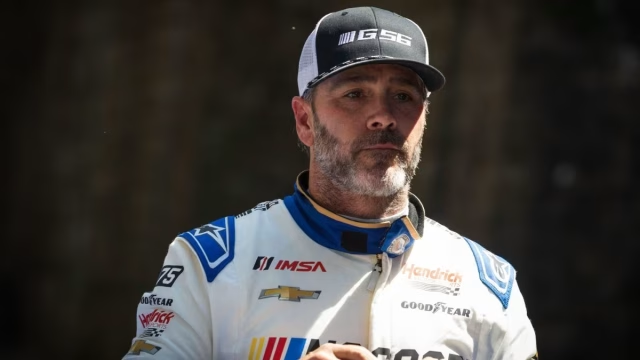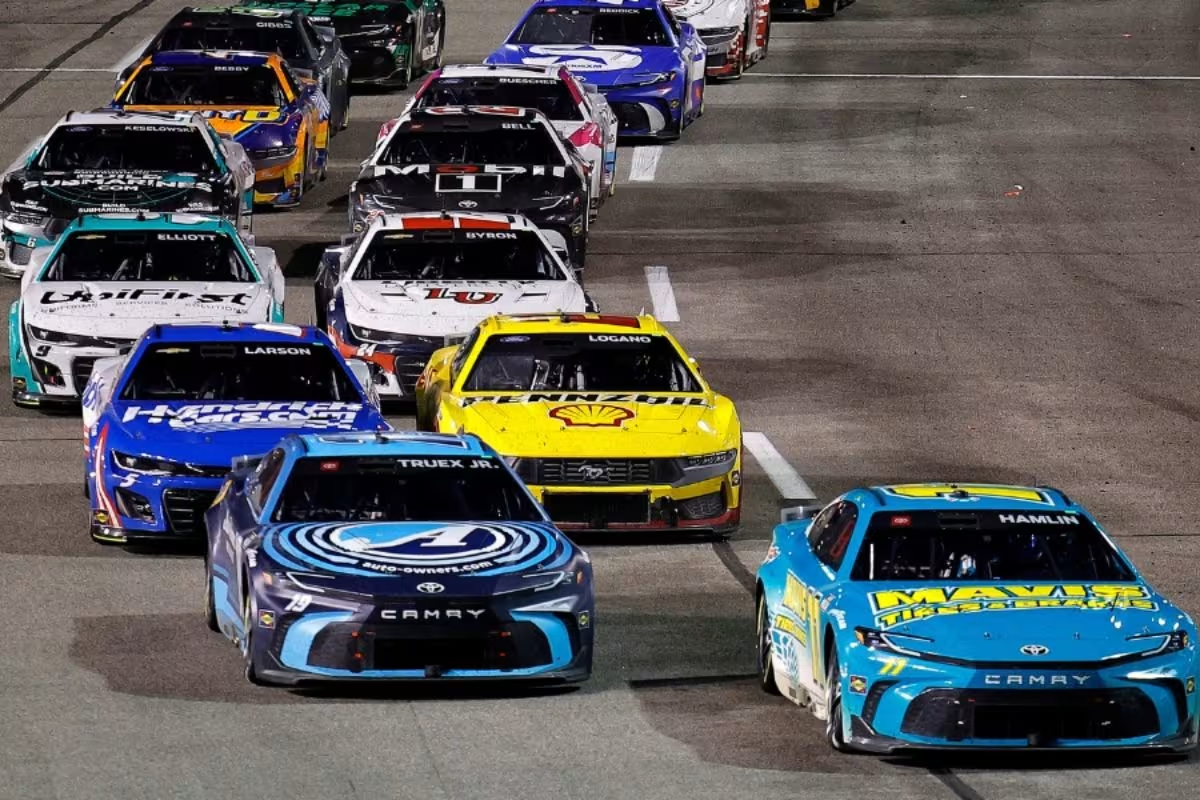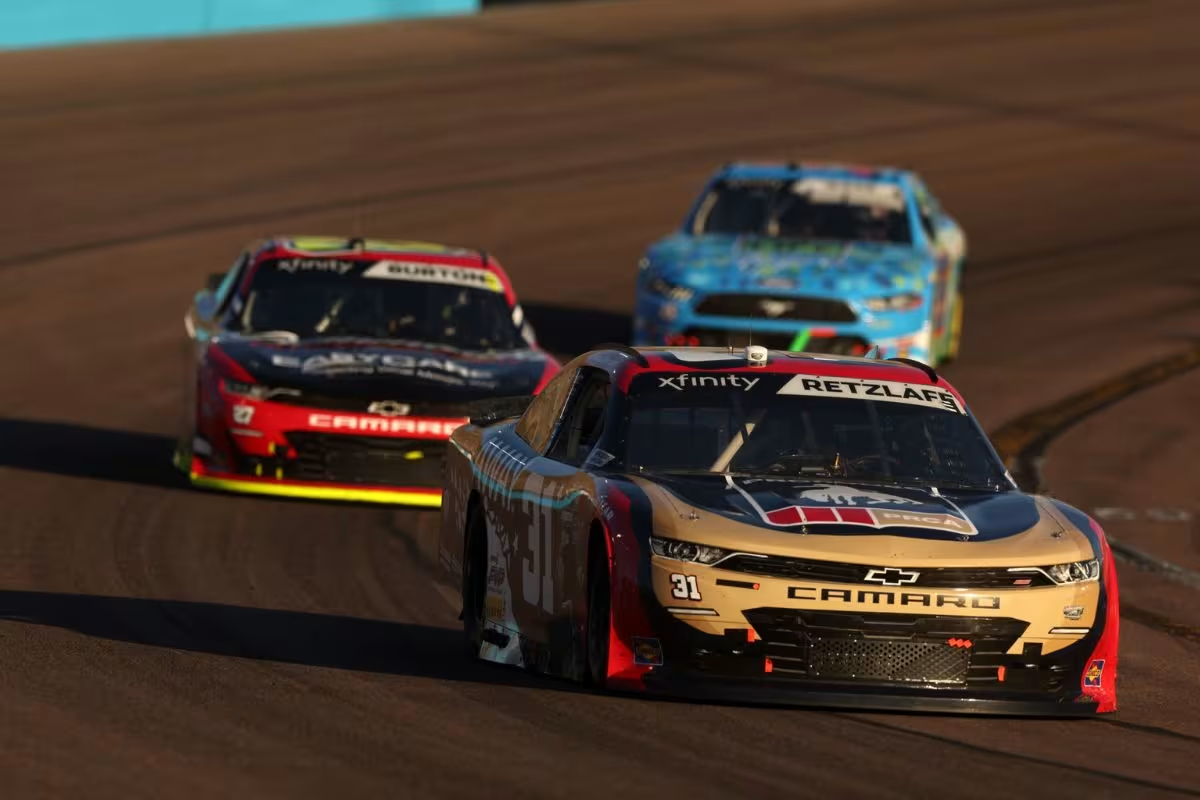Jimmie Johnson Breaks Silence on the Financial Crisis: Jimmie Johnson has opened up about the financial crisis that led to his departure from NASCAR, shining a light on the changing economic landscape of the sport. He revealed that his earnings had dropped by nearly 50% in recent years, which raises concerns about the financial viability for drivers. Factors like increasing insurance costs and shifts in fan engagement have worsened traditional revenue models. Johnson’s transition to IndyCar and his role in team ownership with Legacy Motor Club represent a significant shift in his career.
Key Highlights
- Jimmie Johnson retired in 2020 primarily due to financial pressures impacting NASCAR careers and opportunities.
- His earnings declined by approximately 50% in recent years, affecting his decision to leave the sport.
- The changing revenue models in NASCAR have made it difficult for drivers, especially non-top performers, to secure financial stability.
- Johnson’s transition to IndyCar and team ownership reflects a strategic shift amidst the financial challenges in NASCAR.
- He emphasizes the emotional toll of competitive sports, highlighting the importance of mental health for athletes facing similar financial uncertainties.
Financial Challenges and Retirement Decision
The financial landscape of NASCAR has changed dramatically in recent years, impacting drivers’ careers and decisions. Jimmie Johnson, a seven-time Cup Series champion, serves as a prime example of how these economic pressures influenced his retirement in 2020 after a remarkable two-decade career.
In a candid interview, Johnson discussed the financial challenges drivers face, especially the struggle to secure insurance in a sport experiencing a financial crisis. Over the past 15 years, fan engagement has shifted significantly, putting pressure on NASCAR’s revenue models and prompting the league to implement changes to stabilize its finances.
This economic turbulence has led not only to Johnson’s retirement but also to the exits of other high-profile drivers like Jeff Gordon, Tony Stewart, and Dale Earnhardt Jr. Their departures highlight a broader trend in the sport, where financial viability and personal well-being intersect.
Johnson pointed out that the evolving playoff formats and rules were largely responses to these financial realities, emphasizing the need for adaptation in a changing landscape.
Johnson’s retirement highlights the complex intersection of passion, professional obligation, and financial practicality. The pressures of the sport, combined with economic instability, push drivers to reassess their roles in NASCAR, leading to significant decisions about their futures.
Earnings and Impact on Drivers
Amid evolving financial landscapes, the earnings of NASCAR drivers have experienced considerable fluctuations, impacting their careers and total stability within the sport. Jimmie Johnson, a seven-time Cup Series champion, has openly discussed the clear reality that his earnings have declined by approximately 50 percent over recent years. He notes that the driver contract landscape has shifted dramatically since 2015, indicating a notable contraction in financial opportunities for even the top tier of talent.
This downturn has not only affected elite drivers like Johnson but has also had a profound impact on those lower in the standings. Reports suggest that non-top drivers are struggling to afford vital insurance, a critical component of their financial security given the inherent risks of racing. Johnson’s remarks highlight a disturbing trend: the financial strain has made it increasingly difficult for these drivers to secure standard insurance coverage, leading to a risky situation where some may feel compelled to forgo this necessity.
“NASCAR’s been going through quite a bit of a change since Tony, even prior to Tony’s retirement. The playoffs changed a couple of times. Rules continued to change, and a lot of that is to help the bottom line. And ultimately, the bottom line has moved so much because the way fans consume our sport has changed a lot in the last 15 years or more.”
“I would say that through earnings and potential for a team, it’s been down probably 50 percent, I would say that from a driver contract standpoint from 2015 to probably where it is now is probably half.” – Johnson
As the sport navigates these financial challenges, the implications for driver contracts, sponsorships, and overall team viability are profound. The once-stable economic foundation of NASCAR is now marked by uncertainty, pushing drivers to reconsider their long-term careers within the sport.
“The great fortune being a top driver and 50 percent reduction, it’s still a big number, and the sport has been evolving, and actually kind of on a downturn. And now I believe it is ticking up but on that downturn, the guys on the bottom side, I heard rumors where these drivers can’t afford permanent or temporary insurance, which is kind of standard issue in a sport with so much risks. You hear drivers, ‘I can’t afford it, I’m not going to do it.’” -Johnson
Transition to IndyCar and Team Ownership
How does a shift from one prestigious racing series to another redefine a driver’s career? For Jimmie Johnson, the change from NASCAR to IndyCar marked a pivotal chapter in his professional path. Joining Chip Ganassi Racing in 2021, Johnson welcomed a new challenge, maneuvering through the complexities of open-wheel racing after years of success in stock cars. This alteration not only tested his adaptability but also showcased his commitment to evolving as a driver.
In his third year, Johnson participated in the iconic Indy 500, a race steeped in history and prestige. Qualifying 12th at the Indianapolis Motor Speedway, he illustrated competitive potential, though a crash on lap 194 highlighted the relentless nature of the sport.
Such experiences are crucial in shaping a driver’s legacy, as they reveal resilience and determination in the face of adversity.
Beyond his racing endeavors, Johnson’s foray into team ownership with Legacy Motor Club signals a tactical pivot. As he fields cars for Erik Jones and John Hunter Nemechek, Johnson utilizes his extensive experience to nurture a new generation of talent.
Mental Struggles and Reflections on Values
This self-reflection reveals a critical aspect of competitive sports: the psychological toll that prolonged pressure can exert on even the most accomplished athletes.
Johnson’s achievements, including 83 wins and a legacy as one of NASCAR’s all-time greats, were overshadowed by the emotional burden he carried. The disconnect between his values and his reality prompted a reevaluation of what success truly means, both on and off the track.
“The grind, more than anything, kind of changed me. And I wasn’t holding up to the core values that I can hold for myself. I was just grumpy for the last couple of years.” – Johnson

As he shifts to a new phase in his career, Johnson’s expedition serves as a poignant reminder of the importance of mental health and personal integrity in high-stakes environments.
News in Brief: Jimmie Johnson Breaks Silence on the Financial Crisis
The financial crisis that led to Jimmie Johnson’s departure from racing highlights the broader economic challenges faced by professional athletes. The impact on earnings emphasizes the unstable nature of a driver’s financial stability, while Johnson’s shift to IndyCar and team ownership reflects a change in career focus. Furthermore, the mental struggles and reflections on personal values reveal profound insights into the pressures of competitive sports, stressing the necessity for sustainable career pathways in the racing industry.
ALSO READ: How Jeff Gordon Changed Jimmie Johnson’s Life With One Incredible Introductio



